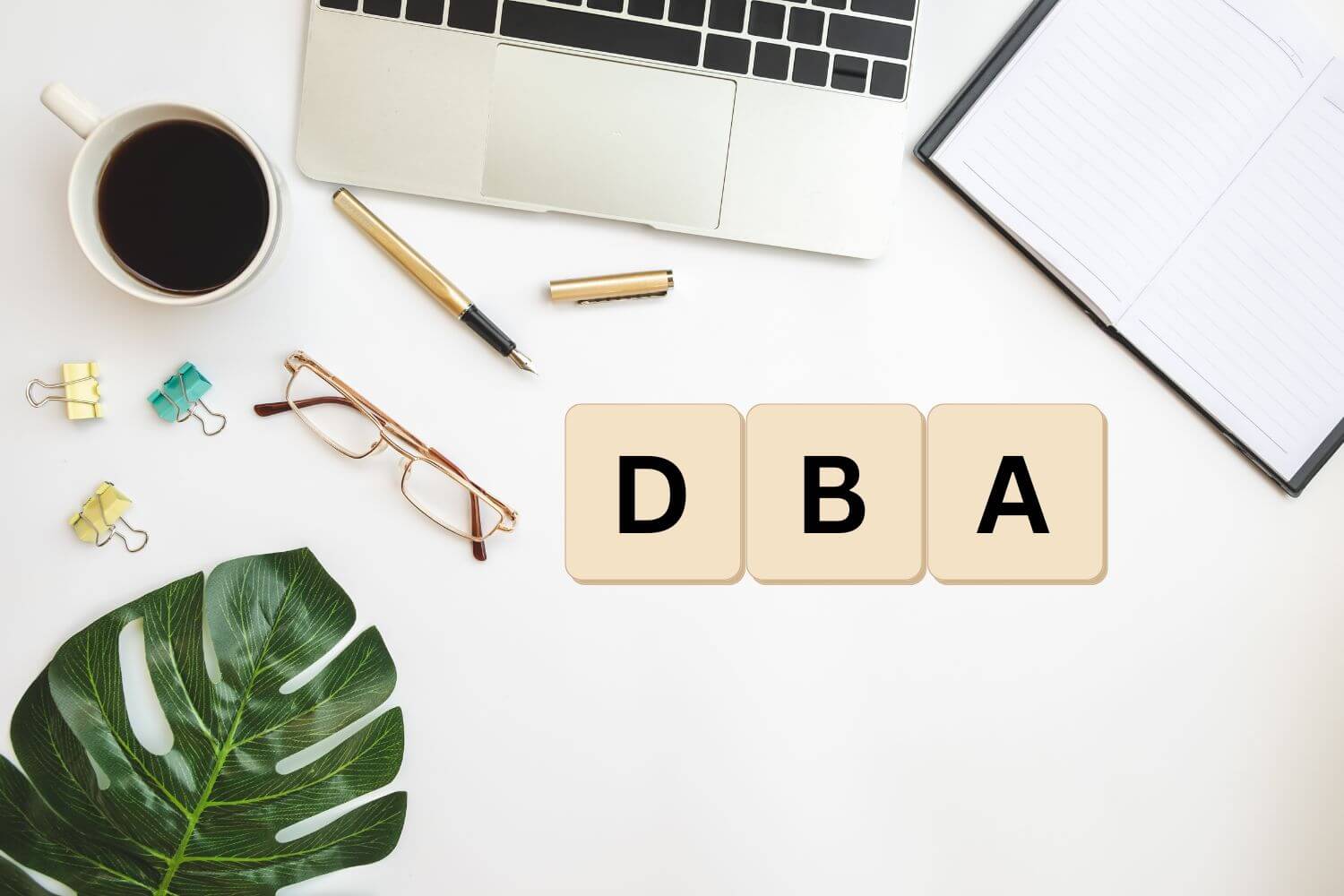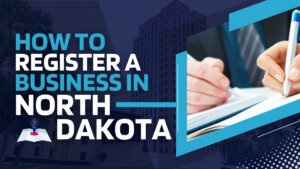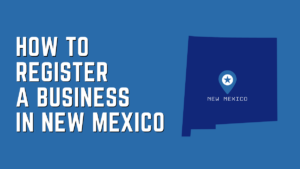Short for “doing business as”, a DBA allows your business to operate under a different name. This helps give your business an identity, a purpose, and a chance to differentiate itself from the other companies out there. This article explains what a DBA is, why you’d want one, and how to file a DBA with your state.
Try ZenBusiness’s unique tools to create the ideal DBA for your business.
What is a DBA?
All enterprises have a legal name established at the time of business registration. For partnerships and sole proprietorships, that legal name must be the name of the owner or owners.
A DBA, or “doing business as”, allows a company to conduct business under a different name. Although LLCs (Limited Liability Companies) and corporations get to choose a name during formation, these entities can also use a DBA to go by a different name.
When starting a DBA, you need to file a request with the state your business operates in. Once the state approves, you can freely use the DBA for advertising or legal matters. Note that your state may refer to a DBA as a fictitious name, assumed name, or even a trade name.
What a DBA Doesn’t Do
While a DBA makes it possible to operate under a new name, it is not a business structure. As a result, a DBA does not offer your business any legal protection. For sole proprietorships and partnerships, personal assets are not safe in the event of a lawsuit or debt collection.
Both LLCs and corporations grant limited liability protection, creating a barrier between your business and personal belongings. With these business structures, there are very few instances where your car, house, or funds would be at risk.
Also, keep in mind that a DBA may not permit the exclusive use of a name. In all but a few states, any other business can decide to file a DBA with the exact same name as you. You can either share the name or file a different DBA and hope for the best.
Why Use a DBA
Using a DBA can be beneficial to your business. Let’s check out some of the top reasons to file one:
Privacy
If you’re a sole proprietor or a partnership without a DBA, your name becomes the face of your company. It will appear on public records and therefore exposed to the masses. A DBA can’t separate your personal and business assets, but it can create privacy for those not wishing to have your personal name so easily accessible.
Stand Out Among the Competition
The business world is full of other companies with similar products or services trying to bring more customers their way. Using your personal name doesn’t reveal what your venture is all about.
Filing a DBA lets you carefully craft a name that customers will be drawn to over the rest of the competition. Choosing something short and memorable can make all the difference for first-time and repeat customers looking to purchase what you sell.
An IT company named John Smith may not get a second look, but filing a DBA for Tech Check is bound to draw more attention.
Expanding to New Areas of Business
After finding success in your business niche, it may be time to broaden your horizons to different product categories. If your current legal name or DBA doesn’t accurately reflect the new line of business, you can use a DBA to market this new area.
Most states allow a business to create as many DBAs as they desire. Each filing requires paperwork and a fee for the state to set up.
Credibility
Having a more official-sounding name speaks volumes for business credibility. Customers may not be as trusting of a company using only your personal name as its title.
To Open a Business Bank Account
Some banks will not open a business bank account to sole proprietorships or partnerships using nothing more than a legal name. Instead, they require proof of a DBA filing before honoring your request. Business bank accounts often come with perks to help manage company finances more efficiently.
Ready to file a DBA? Get your filing done with ZenBusiness in no time.
How to Set Up a DBA
Filing a DBA is a fairly straightforward process across the country. Here are the steps you’ll need to follow to do business under another name:
Step 1: Understand Your State’s Guidelines
Registering a DBA varies significantly from state to state. Be sure to research and understand your state’s guidelines before attempting to submit any paperwork.
Some states demand filing at the city level, whereas others mandate submissions to the county or state government. A few require registration at multiple government levels.
If you’re already conducting business in a state under your legal name, it makes sense to file your DBA at the same location. Anyone having flexibility with state selection or forming an online business may want to consider a state with minimal DBA requirements.
Step 2: Come Up With a DBA Name
Once you’ve figured out state matters, you’ll want to come up with the perfect DBA name for your company. This designation should tell customers what you are at a glance and what to expect when visiting your store or website.
Nearly every state has no rule about multiple businesses using the same DBA, so you will need to be creative in order to stand out. Catchy, fun, and unique names also tend to draw more attention and ultimately more shoppers.
However, if your name is too lengthy or difficult to spell, customers may not remember you or be able to pass your name along to others. It’s okay to consider variations with non-dictionary words as long as they spell how they sound.
Think about the full scope of your business now and in the future when deciding on a DBA name. Something too specific may make it awkward to expand to new areas down the road if you want to keep all your products and services under one name.
Each state does have some limitations on titles you can use. For instance, you can’t imply your business is an LLC or corporation with your DBA if it doesn’t fall under that business structure.
Step 3: Check if Your DBA Name is Available
With one or more names in mind, use a professional business registration service to see what’s available. When doing a search, these services will alert you to other companies with the same or similar designations. If you strike out, some platforms will take your concept and offer suggestions that aren’t currently in use.
And a Domain Name As Well
With the perfect name in hand, you should register a domain that’s the same if you ever plan to take your business online. If a domain matching your DBA isn’t available, you may want to take your name search back to the drawing board.
A domain acts as a web address for your company, and customers won’t know where to turn if it’s any different from your DBA name. Keeping the two the same helps shoppers find your site and can add to your professional appeal.
There’s no way to buy a domain name, but you can rent one for up to ten years at a time. Sites like NameCheap make it easy to see which domains are available and the costs for picking one up.
Step 4: Register your DBA
Before you can legally start using your DBA name, you will have to register it with the state. This requires filling out the appropriate forms and paying any necessary fees. You’ll have to deliver paperwork in person or by mail in some states, whereas others will let you complete forms online.
As soon as you’re official in the government’s eyes, you’ll receive a document stating that you can conduct business under your DBA name. Financial institutions or other companies may request this information before striking up business dealings with you.
Step 5: Publish Your DBA Name
You’ve registered your DBA name, and now you want to shout your new business title from the rooftops. Publishing your DBA in an approved newspaper or recognized legal publication is a great way to get the word out there.
Although optional in most areas, a number of states require this announcement within a set period after the DBA registration process. Newspaper publishers in these locations typically have a firm understanding of what the state mandates.
Work with newspapers to determine the dates your company’s information will appear and what applicable costs will be. If there’s an issue with the publication, be sure to let the newspaper know right away.
Step 6: Maintain your DBA Name
A few states will let you continue using your DBA name in perpetuity, but most require you to renew every few years. You’ll need to submit a new application and fees much the same way you did during the initial setup.
If you let your DBA name lapse, you can no longer legally use it when promoting your business. Anyone caught doing so could face serious repercussions.
How to File a DBA – Frequently Asked Questions (FAQs)
Below you’ll find answers to common questions about DBA registration.
Bottom Line on How to File a DBA
Filing a DBA is a relatively easy process requiring a little ingenuity, a fee, and some time. Doing so can help your business stand out while affording the privacy of not having to use your personal name. Although a DBA doesn’t offer any legal protection, having one in place can significantly increase your company’s influence.
You can use ZenBusiness to search your state’s database for available DBA names. If you need inspiration, ZenBusiness will generate ideas from a list of keywords you provide. When you’ve settled on a name, use this service to send out your application in mere minutes. Read more about what Zenbusines can do for you.
Try ZenBusiness to create the ideal DBA for your business.
Best Business Bank Accounts by State
Below you will find an interactive U.S map that can help you locate and compare different banks and financial institutions that offer business accounts in your area.
 Sections of this topic
Sections of this topic
















